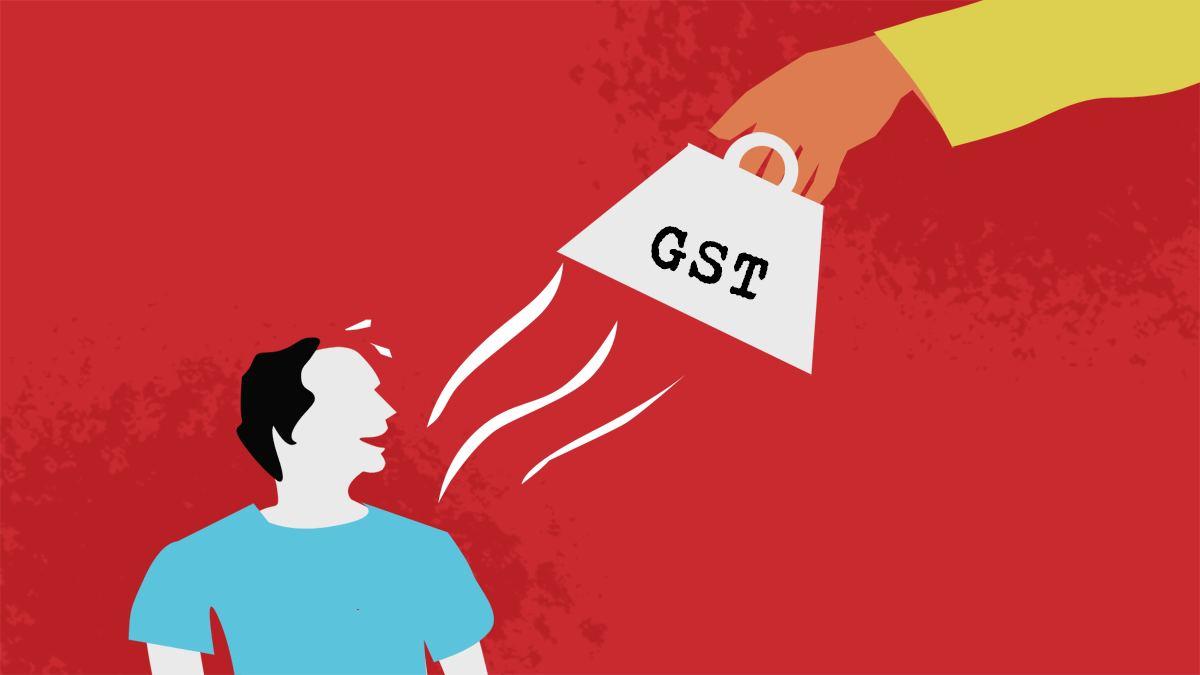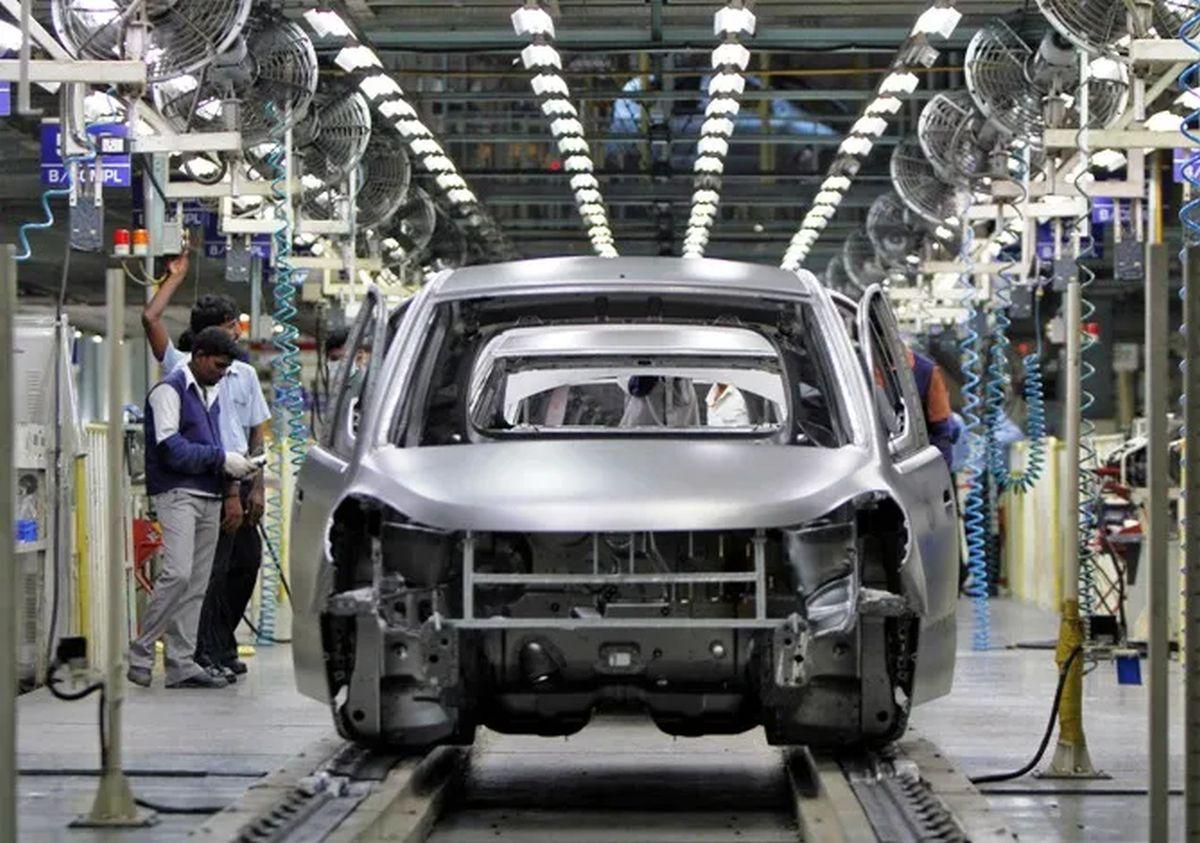‘In case a particular industry has not passed on the benefits and if we receive complaints, we will take up the matter with the industry body concerned.’

Illustrations: Dominic Xavier/Rediff
After the Goods and Services Tax Council took the historic decision to restructure the indirect tax regime, Central Board of Indirect Taxes and Customs (CBIC) Chairman Sanjay Agarwal, in an interview with Monika Yadav and Asit Ranjan Mishra/Business Standard, explains the fineprint.
Now that GST rates have been significantly rationalised, do you think the GST Council should still meet frequently as mandated?
The rates that have been set should not be touched again and again. But the council doesn’t meet only for rate rationalisation.
Many a time clarification has to be issued or certain changes in the law may be required. So the GST Council has to be convened.
Now are you planning to resolve past tax disputes at a faster pace?
In GST, dispute resolution is time-bound and within a certain time frame the matter needs to be adjudicated. So those time limits are being adhered to.
Health and life-insurance companies are arguing that without input tax credit (ITC), their costs will rise, forcing them to absorb the burden, which means customers will not receive the full benefit of lower taxes. Will there be a rethink on allowing ITC for such insurance companies?
If some item has been exempted or is chargeable at a minimum rate of duty, ITC is not available.
So once these policies are subjected to the nil rate, ITC will not be available on the inputs or input services used in providing those policies.
So to that extent, yes, maybe it will get embedded in the cost or premium.
Insurance companies were making some payment from ITC and some from cash.
Now they will not be required to make any payment in cash. So the benefits should be passed on by them to consumers.

States are raising concerns of revenue loss. Shouldn’t they be compensated?
If both (the Centre and the states) decide to bring down the rates, where is the loss? It is a revenue implication. I bear my share, you bear yours.
If you think on items of common use rates need not be brought down because doing that will be a loss to my revenue, then say so, but nobody did that. It (the cuts) was a unanimous decision.
What about the states’ demand for an additional levy over and above 40 per cent slab?
In GST Council meetings, we discuss only matters related to GST. We cannot discuss the economy as a whole. The proceedings of the GST Council are confidential.
With most food items now in the 5 per cent slab, fast-moving consumer goods companies still pay 18 per cent on input services like transport and advertising. Since refunds are not allowed on services under the inverted duty structure, how much of the benefit of lower GST can reach consumers?
Refund is available only in the case of inversion due to goods and not because of services. So, if inversion is because of services, then no refund is issued.
On certain industry-premium products, advertising expenses will be very high, but on certain items, they may be very low.
So ITC will vary from item to item. That’s why I am saying each product will have to be studied separately.

IMAGE: Central Board of Indirect Taxes and Customs Chairman Sanjay Kumar Agarwal. Photograph: Jitender Gupta/ANI Photo
How will you ensure rate rationalisation is passed on to consumers by industry?
There is no anti-profiteering provision in the law. By and large, industry is expected to pass on the benefits to consumers.
Each industry will do its own calculations. In case there is a feeling that a particular industry has not passed on the benefits and if we receive complaints, we will take up the matter with the industry body concerned.
Market economics sees to it that the benefits are passed on to the ultimate consumer.
So the sunset clause related to anti-profiteering will not be revised for the future date?
The sunset provisions have not been revived. But what I can say is that when this provision was there, in 2017, 2018 and 2019, rate reduction was made on many items.
Then too not many applications were received, and the amount involved was not huge. So we are not expecting any unusual situation.
So it means then industry had passed on the benefits to end consumers. So why should the position change now?
Which are the items that moved from 5 per cent to 12 per cent to 18 per cent?
Two items moved from 12 per cent to 18 per cent — certain works contract services. From 18 per cent to 40 per cent, some, maybe, non-alcoholic beverages, carbonated drinks, caffeinated beverages, energy drinks, and non-alcoholic beer.
Many of these items were subject to 28 per cent and 12 per cent compensation cess. So put together the rate was 40 per cent. So, the rate of incidence has been kept intact.

IMAGE: Finance Minister Nirmala Sitharaman and Minister for State for Finance Pankaj Chaudhary attend the 56th GST Council meeting in New Delhi, September 3, 2025. Photograph: Jitendar Gupta/ANI Photo
What happens to the compensation cess balance across the distribution chain after September 22?
The legal position is such that the compensation cess can be utilised till September 21.
From September 22, there won’t be any compensation cess on sales of cars.
There is no question of utilisation of credit also because there is no cess. So if there is any input tax credit available on the compensation cess, it cannot be utilised.
There is no provision of refund or giving any treatment to those lying in balance in the ITC account.
In the case of intermediary services that have been assigned exporter status, will the proposed amendment be done with retrospective effect to protect businesses for past demands on intermediary services?
This is the amendment that has been reported by the GST Council. It will be brought in the Budget and passed by Parliament.
But litigation exists pertaining to intermediary services. Will that be dropped?
Litigation is when two different stands are taken by the department and taxpayers.
Those will be resolved on the basis of facts of those cases. But the legal position is that shifting liability from one person to another person, from one jurisdiction to another jurisdiction cannot be brought with retrospective effect. It has to be with prospective effect only.
Feature Presentation: Rajesh Alva/Rediff




